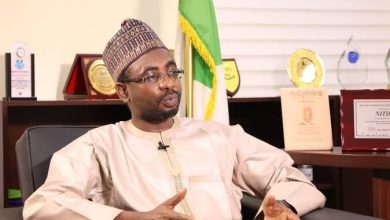Tinubu Govt Launches HND in AI, Cybersecurity to Power Nigeria’s Tech Future
The Federal Government has introduced new HND programs in Artificial Intelligence, Cybersecurity, Software Engineering, and Networking to prepare Nigerian students for a tech-driven future.
This major educational reform, led by NBTE, supports Nigeria’s digital economy ambitions and boosts local capacity in critical Fourth Industrial Revolution technologies.
In a landmark step to align Nigeria’s education sector with emerging global technology trends, the Federal Government has officially launched specialized Higher National Diploma (HND) programs in Artificial Intelligence (AI), Cybersecurity, Software Engineering, and Networking. The bold initiative, spearheaded by the National Board for Technical Education (NBTE), marks a major turning point in the nation’s strategy to empower its youth for the digital economy.
The Executive Secretary of NBTE, Professor Idris Bugaje, disclosed the development in an exclusive interview with the News Agency of Nigeria (NAN) in Abuja. He described the rollout of theses pecialized programs as a key policy initiative under President Bola Ahmed Tinubu’s administration, which aims to equip Nigerian students with cutting-edge skills relevant to the Fourth Industrial Revolution also known as Industry 4.0.
According to Prof. Bugaje, the curriculum overhaul is not just a response to current market needs but a strategic move to prepare Nigeria’s youth for a tech-dominated future. “We have unbundled the traditional HND courses into more focused and industry-relevant disciplines,” he said. “This is already in implementation, and we are using the Nigeria Skills Qualification Framework (NSQF) to offer more detailed and hands-on modules in these domains.”
This educational reform is timely, given the growing global demand for professionals proficient in data science, cybersecurity, AI systems, and software development. Countries around the world are investing heavily in digital literacy, automation, and machine intelligence, and Nigeria is now positioning itself to not just catch up, but compete.
Bugaje emphasized that these reforms go beyond revising course syllabi. As part of the broader strategy, the NBTE has integrated Artificial Intelligence-powered tools into the governance and administrative processes of technical and vocational institutions. One of the notable innovations is a new AI-driven digital accreditation platform, which is currently being used to monitor compliance with academic and institutional standards in real time.
“This platform helps us monitor real-time compliance with academic standards and detects anomalies like faculty duplication,” Bugaje explained. “For example, if a lecturer is listed on multiple polytechnic websites simultaneously, the system immediately flags the inconsistency. This ensures accountability and eliminates fraud, helping us preserve the integrity of our academic institutions.”
The move is also backed by active collaboration between NBTE and tertiary institutions across Nigeria to ensure infrastructure and teaching personnel are adequately prepared. Training modules are being updated, staff are undergoing capacity-building workshops, and institutions are being equipped with the tools and labs necessary to teach these high-demand subjects.
Stakeholders in the education and tech sectors have widely praised the government’s decision. With innovation hubs sprouting across Lagos, Abuja, Kaduna, and other cities, the demand for qualified digital talent has never been greater. The introduction of these targeted programs is expected to feed this demand with a steady supply of skilled professionals, while also boosting Nigeria’s chances at becoming a major player in the global tech landscape.
In addition to supporting industrial innovation, this initiative plays a key role in Nigeria’s broader economic agenda. As the country seeks to reduce its dependency on oil revenues and diversify its sources of income, technology presents a sustainable growth path. Experts argue that developing core capabilities in AI, cybersecurity, and software engineering will unlock new sectors, create jobs, and enhance Nigeria’s ability to attract foreign investment.
The NBTE’s strategy also aligns with global trends in education, where there is increasing emphasis on competency-based training and real-world application of skills. Through the NSQF, the new HND courses incorporate practical training that meets industry standards, making graduates more employable both locally and internationally.
“This isn’t just about keeping up with the rest of the world,” Bugaje concluded. “It’s about creating a future where Nigerian youth lead the charge in technological innovation, offering local solutions to global challenges.”
As the government continues to implement its digital transformation agenda, this development represents a foundational step toward building a knowledge-driven economy, one where the nation’s human capital becomes its most valuable asset.



